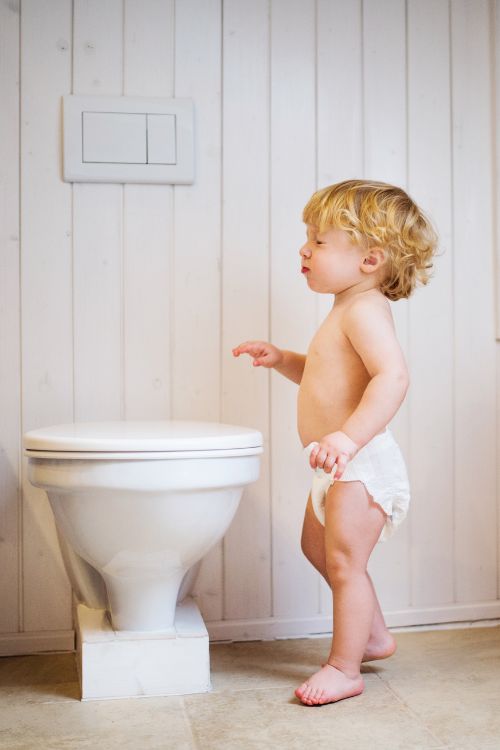Ah, the joys of parenting toddlers!
They don’t just want your snacks or attention—they want your bathroom privacy too.

1. Why Do Toddlers Follow Adults to the Bathroom?
Curious
Toddlers are little scientists, and they’re constantly observing and trying to understand how the world works.
Bathroom activities are a mystery to them, and they want to know what’s going on behind that door.
They’re Anxious
They can’t stand being apart from you, even for a couple of minutes, and that closed door feels like a wall between them and their favorite person.
They Mimic Everything
Toddlers love copying adults, whether it’s cooking, talking, or, yes, going to the bathroom.
They Want to Control
Ironically, barging into your space is part of their quest for autonomy.
It’s their way of saying, “I want to understand and control this part of my world!” even if it means invading your personal time.
Fear of Missing Out (FOMO)
Life is exciting to toddlers, and if you disappear into the bathroom, they assume something fun must be happening in there.
2. How to Deal with or Limit Bathroom Visits from Your Toddler
Sometimes you just need that 10 minutes of peace in the bathroom without an audience.
If your toddler keeps tagging along, here are some strategies to gently nudge them toward respecting your bathroom boundaries (yes, even toddlers can learn boundaries).
Tip 1. Explain What You’re Doing
Start with the basics: “I’m going potty, and I’ll be back in a minute.”
Keep it simple, and reassuring, and repeat it every time they try to join you.
Eventually, they’ll understand that you’re not disappearing into some secret portal of fun—just handling business and coming right back.
Tip 2. Set Boundaries
Some parents go the direct route and lay down the law: bathroom time is private.
You can try using a calm, clear statement like, “This is my alone time. You’ll get your turn when I’m done.”
Toddlers remember when you repeat enough, so don’t be surprised if you have to say this 23 times a day.
Tip 3. Distract and Redirect
Timing is everything.
Before you head to the bathroom, set them up with something they love—whether it’s a puzzle, a favorite toy, or the holy grail of toddler distraction: snacks. (non-messy type is best).
Personally, I’m not big on using screens to keep the kids busy, but let’s be real—sometimes Paw Patrol can save the day for those few minutes you need in the bathroom.
Tip 4. Turn Bathroom Interest Into Potty Training
If they’re old enough to show curiosity, use it to your advantage.
Get them their own little potty and let them practice while you go.
It’s a win-win: you might get some space, and they get a head start on potty independence.
Tip 5. Let Them Be
Toddlers are unintentionally hilarious.
If they barge in, roll with it.
One time, my toddler yelled, “Good job, Daddy!” mid-flush, and honestly, I laughed so hard.
Laughing doesn’t solve the problem, but it makes it easier to deal with at the moment.
Tip 6. Lock the Door (Eventually)
When they’re a bit older (around 3 or 4), you can start introducing the concept of locked doors.
Explain that it’s about privacy, not shutting them out.
Let them know it’s okay to knock if they need something but emphasize that everyone needs a few minutes of alone time sometimes.
Tip 7. Call Your Partner
Your partner can be a solution to everything.
Tag them in.
A little “Mommy/Daddy time” distraction is often the best solution while you handle business in peace.
Bonus Tips
Don’t Feel Guilty:
Wanting a few minutes alone doesn’t make you a bad parent.
You’re human, and keeping your sanity matters!
Childproof That Door:
If your kid’s a determined little lock-picker, install a childproof latch higher up to keep them out while you’re inside.
Seek Support If Needed:
If your toddler’s attachment is so intense that they can’t let you out of their sight without a meltdown, it might be worth chatting with a professional.
Severe separation anxiety can happen, and there’s no shame in getting advice on how to manage it.